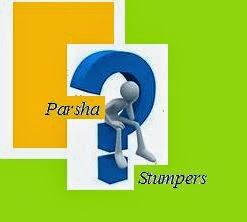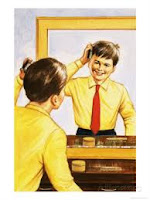5-Bullet Friday: Parshas Mishpatim

~ Torah Parallels ~ 5-Bullet Friday This week is Parshas Mishpatim! Check out this week's d'var torah here . Have feedback or suggestions for future 5-Bullets? Fill out the survey here Here is this week's 5-Bullet Friday , a quick summary of thoughts I’ve been pondering during the week: : Question I'm pondering (on the parsha): Piercings. Rashi (21:6) comments that if a Jewish slave decides to stay by his master, he must get his ear pierced. The reason, as Rashi continues quoting Rabban Yochanan ben Zakkai, is because he became a slave by not listening to the commandment at Har Sinai not to steal. So the ear that didn't listen at Har Sinai not to steal should be pierced. And if he sold himself as a slave, then similarly the same logic applies that the ear that didnt hear at Har Sinai the charge of Bnei Yisroel to be avadim of Hashem and instead went to het himself his own master, should be pierced. However, why should the eved’s ear be pie...



